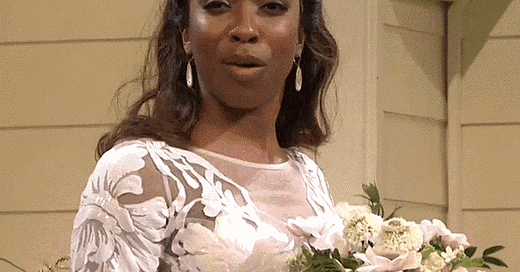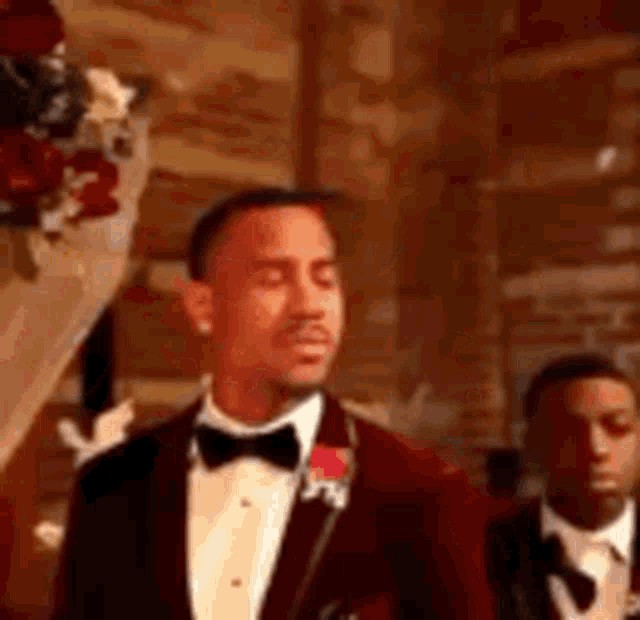At WALK THRU, we dive beneath the surface of scripture to uncover hidden gems that have been waiting for you all along. Whether you're a young C.S. Lewis or just opening your Bible for the first time, I'm thrilled you're here as we discover the extraordinary within what others might skip past.
QUICK QUIZ: What would you do if...
You're at the altar on your wedding day. The veil lifts, and... SURPRISE! It's your fiancé's sister/brother standing there instead! Do you:
A) Run screaming from the ceremony
B) Demand a refund on the catering
C) Shrug and say "I guess we're doing this now"
D) Work another seven years for the person you actually wanted
If you chose anything but D, you're not READY for today’s topic! Welcome to the biblical catfish story that makes modern dating look easy.
The Unexpected Reunion
Genesis 29 unfolds with beautiful symmetry. "Then Jacob continued on his journey and came to the land of the eastern peoples." This seemingly simple travel note sets up a masterful parallel to Abraham's servant finding Rebekah at a well – now Jacob himself arrives at a well to find his bride. The pattern is revealing:
Journey → Divine appointment → Family connection → Marriage negotiation → Unexpected complication
This isn't just storytelling – it's illuminating something profound about how God orchestrates our paths. What appears as coincidence often reveals divine fingerprints. Each verse builds upon ancestral patterns while introducing surprising new twists.
The most expensive things in our lives are rarely measured in dollars. Sometimes, like Jacob, our greatest costs are paid in years.
Breaking Down the Chapter
Verses 1-14: The well encounter and family reunion
Verses 15-20: Jacob's love and labor agreement
Verses 21-30: Laban's deception and Jacob's double marriage
Verses 31-35: Leah's fertility and naming her sons
Genesis 29 tells the story of Jacob meeting and falling in love with Rachel, agreeing to work seven years for her father Laban to marry her, only to be tricked into marrying her older sister Leah first, then working another seven years to finally marry Rachel. It explores themes of deception (as Jacob the deceiver gets deceived), covenant commitment, divine justice, and how God brings purpose from human dysfunction.
Through Rachel's beauty, Jacob's devotion, Laban's manipulation, and Leah's pain, we witness a messy family drama where human desires clash with cultural obligations—yet God's sovereign plan unfolds through it all, ultimately using the unloved Leah to establish the lineage that would lead to the Messiah.
The Divine Mirror: Seeing Ourselves
When we reach Laban's wedding night switcheroo, the narrative delivers perfect irony. The man who disguised himself as his brother to steal a blessing now cannot recognize which sister he's marrying. "When morning came, there was Leah!" (Genesis 29:25).
This is masterful. In a text where Jacob previously used darkness and disguise to deceive his father Isaac, he now becomes the victim of darkness and disguise. The trickster gets tricked. The blessing-thief gets robbed of his expected bride.
Sometimes we meet ourselves in scripture's mirror. Jacob's story reminds us that our methods often become the means of our own education.
The story doesn't portray any character as purely villain or hero. Jacob loves passionately but shows favoritism. Laban is calculating but upholds certain cultural values. Leah participates in deception but suffers rejection. Rachel is beloved but envious. These aren't flat characters but complex humans whose choices echo through generations.
CHRIST as our BRIDEGROOM
Genesis 29 foreshadows Christ beautifully in Jacob's sacrificial pursuit of his bride. Just as Jacob worked fourteen years, enduring hardship and deception for Rachel, Christ labored infinitely more for His church. Where Jacob was deceived in darkness, Jesus entered our darkness willingly.
The bridegroom who paid with years of service points to our ultimate Bridegroom who paid with His life. And just as Leah—the unloved, overlooked wife—became the matriarch of Jesus' lineage, God consistently works through the rejected and marginalized to accomplish His greatest purposes.
In Jacob's costly love, we glimpse Christ's immeasurable devotion; in Leah's unexpected elevation, we see how God transforms human disappointment into divine appointment through the true Bridegroom who will never be deceived about who His bride is.
The Overlooked Sister
Genesis 29 contains one of scripture's most heartbreaking verses: "When the LORD saw that Leah was not loved, he enabled her to conceive, but Rachel remained childless" (Genesis 29:31).
In this single sentence, we discover God's special concern for the rejected and overlooked. While Jacob's eyes were fixed entirely on Rachel, God's compassionate gaze fell upon Leah – the unwanted wife, the collateral damage in Laban's scheme.
This reversal – the unloved becoming fruitful while the beloved remains barren – isn't divine punishment but divine balance. God doesn't play favorites the way humans do. Where human love is withheld, divine compensation often appears.
The names Leah gives her sons reveal her emotional journey:
Reuben ("see, a son") – "Surely my husband will love me now"
Simeon ("heard") – "Because the LORD heard I am not loved"
Levi ("attached") – "Now my husband will become attached to me"
Judah ("praise") – "This time I will praise the LORD"
Notice the transformation? Leah moves from seeking Jacob's validation to finding fulfillment in praising God. Her growth from desperate longing to spiritual gratitude offers a powerful lesson about where we anchor our worth.
God was orchestrating something REVOLUTIONARY through the woman no one wanted…but wait what’s next….
IT’S ALL ABOUT LEAH!!!
It was LEAH – the "weak-eyed" wife, the deception bride, the consolation prize – who God chose to become:
The mother of JUDAH - the royal tribe that produced King David
The mother of LEVI - the priestly tribe of Moses and Aaron
And ultimately... THE ANCESTRAL MOTHER OF JESUS CHRIST HIMSELF!
The woman whose tears soaked her pillow at night became the woman whose DNA would flow into the Savior of the world! The wife who begged for scraps of affection became the matriarch of the Messianic line!
The first become last, the last become first. The marginalized become central. The unwanted become INDISPENSABLE.
Listen here, your value isn't determined by human preference but by DIVINE purpose! Leah wasn't seen by the man she wanted, but she was CHOSEN by the God who mattered!
Sometimes what looks like rejection is actually God's redirection into a GREATER NARRATIVE than we could imagine. Leah may have lost the battle for Jacob's heart, but through her womb came the One who would win the war for ALL our hearts!
We have all felt overlooked at one time in our lives, but your worth is only determined by the One who created you. If you're feeling overlooked today, LOOK UP! The God who elevated Leah sees you too!
Your Turn to Walk Through
As you read Genesis 29 again (and I encourage you to do so), consider:
Where do you see yourself in this story – as Jacob laboring for love, as Laban manipulating outcomes, as Rachel beloved but barren, or as Leah seen by God when overlooked by others?
What "Labans" exist in your life – people or situations that haven't delivered what was promised?
How might God be working through disappointments or detours in your own story?
Remember, this isn't just an ancient marriage drama – it's a reminder that God works within human messiness, that divine purposes unfold through imperfect relationships, and that sometimes our greatest blessings come wrapped in our deepest disappointments.
Join the Conversation
I'd love to hear your thoughts on Genesis 29 and how it speaks to your own journey. Share your insights, questions, or personal reflections below - this is a space where we can walk through scripture together. Let's GO!









